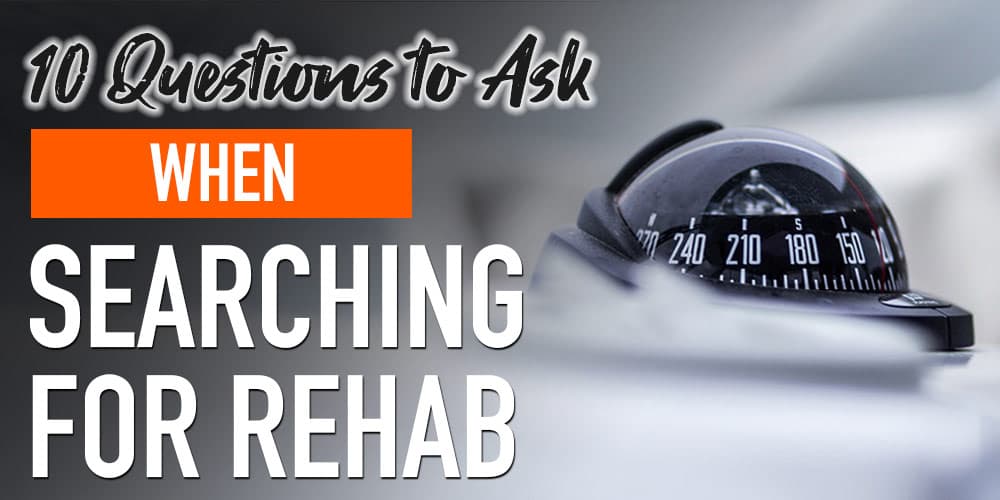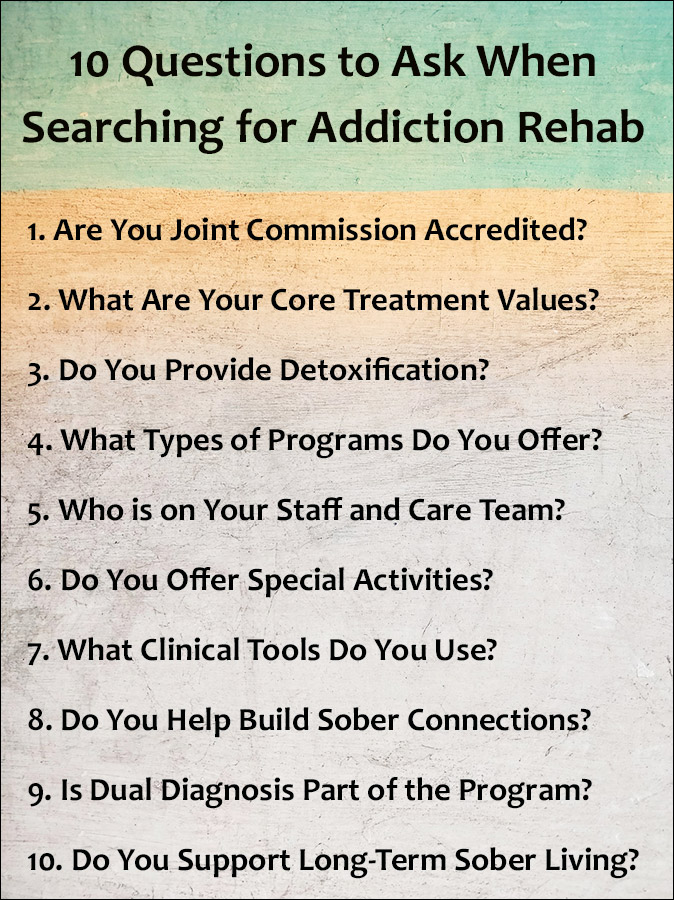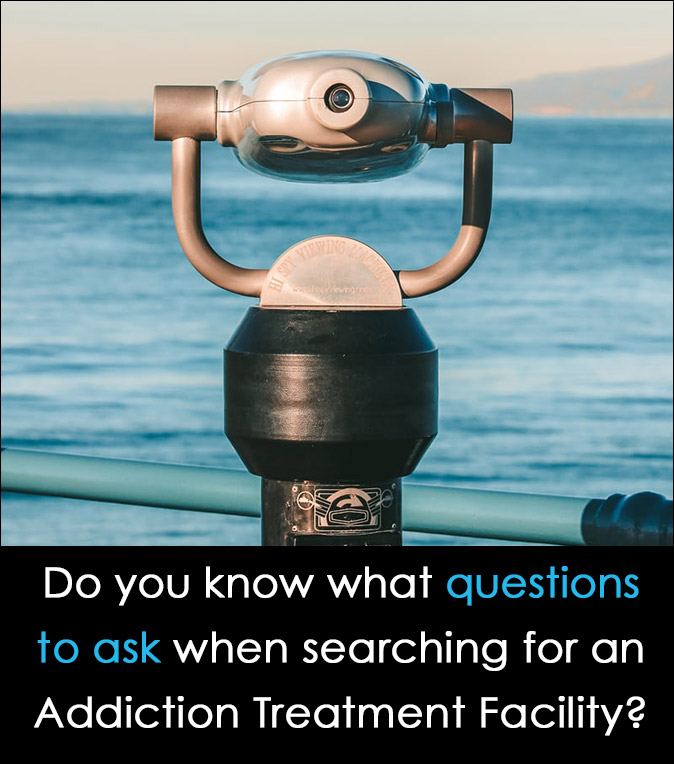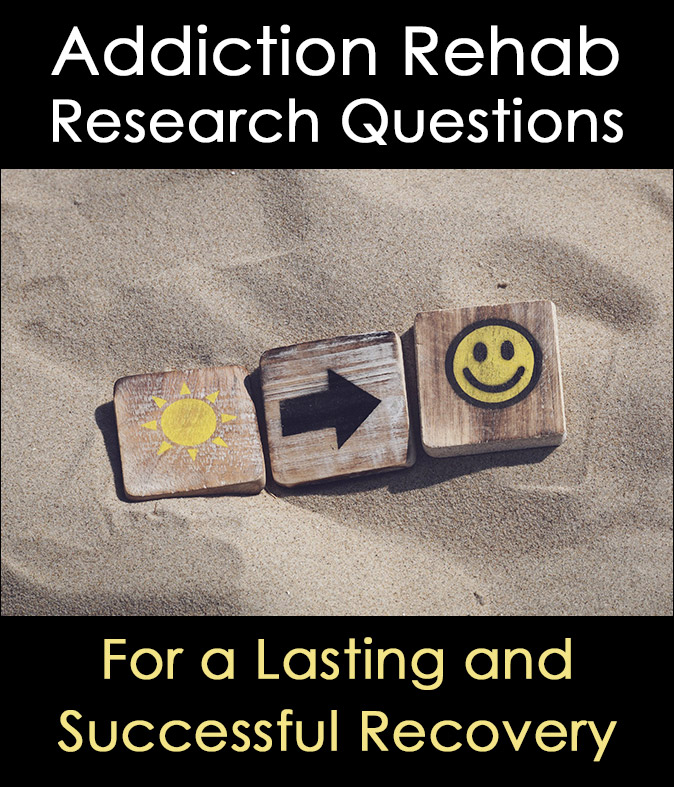
Searching for the perfect addiction rehab can be overwhelming for most people. Whether you’re searching for yourself or someone you care about, asking the right recovery related questions can help you find the most appropriate treatment.
The truth is, each person who chooses to begin recovery has their own set of unique goals and needs.
For this reason, it’s crucial to find a treatment center that offers a plan that custom-designed for each individual client.
At Oro House Recovery Centers we fully understand this and take the time to create a plan that is individualized to best fit the needs of each client.
There is no cookie-cutter approach to drug or alcohol rehabilitation. But you’ll want your chosen recovery center to fulfill some essential criteria.
That being said, you need to do some research to find out if a particular recovery center is a good fit.
What questions should you ask when searching for addiction rehab treatment?

10 Recovery Related Questions
There are many valuable recovery related questions to ask when searching for an addiction treatment facility.
Here are some of the most important ones…
1. Do You Have Joint Commission Accreditation?
The reason for asking if an addiction treatment center has a Joint Commission Accreditation, formerly known as JCAHO, is to find out about performance and safety-related issues. First and foremost, it’s essential that your chosen rehabilitation center is safe and secure.
The Joint Commission sets clear standards that a health care center must adhere to. This accreditation keeps treatment centers accountable to an external body that evaluates the quality of care, treatment, and services delivered to clients.
Being accredited demonstrates an ongoing “commitment to safe, high-quality care, treatment, and services.”
Addiction treatment centers that are Joint Commission Accredited will display the Gold Seal of National Quality Approval on the home page of their website.
2. What are the Core Values and Philosophy of the Addiction Rehab Center?
This question is key to finding out if the treatment center’s values align with your own values.
Some treatment centers are purely 12-step based, dedicated to only one gender, or specific types of groups. While others, like Oro House, provide community-based, holistic, long-term luxury addiction treatment.
It’s important to decide what values you want in your recovery center and find one that works well for you, or a friend or family member. Decide what recovery means to you and find out how your chosen recovery center defines addiction and recovery.
At Oro House, we developed the Compassionate Care Model® of addiction treatment because we feel compassionately connecting with our clients is a key to successful recovery.
3. How Do You Approach Detoxification?
This is an important question to ask because not all treatment centers offer drug or alcohol detox in-house.
Many of them say they offer it, but they must send their clients to an approved detox facility because they either don’t meet the needed requirements, or they don’t have doctors available to provide those services.
It’s much better for the patient when the treatment center offers both detox and recovery programs in-house for improved continuity of care.
The detox process can be extremely stressful and uncomfortable when coming off certain drugs, like opioids. For substances like alcohol or benzos, detox can be dangerous, and it must be monitored by doctors. Understanding how the detox process works is a vital question to ask about.
Always ensure the treatment center offers a “medically monitored detoxification program” that is administered by medical doctors who specialize in addiction medicine.
More specifically, is there a board certified addictionologist on the medical team, as well as registered nurses that oversee the detoxification process on-site 24 hours a day?
Medication Assisted Treatment is one of the most successful ways to treat opioid addiction and uses a variety of agonist vs antagonist drugs for detox and treatment.
Detox is just one critical step in the process of recovery, and it’s necessary that clients are monitored face to face daily, with 24-hour registered nursing care.
4. What Types of Programs Do You Offer?
While many recovery centers offer 12 step programs, some focus on non 12 step rehab that offers clinical and holistic treatment with 12 step options.
Each client is different and no two cases are the same. A care plan should be specifically designed to heal the mind, body, and soul of the individual.
A professional assessment is one of the first steps to being admitted to the program and each client should be assessed by an addiction psychiatrist and given a full psychological evaluation. Be wary of any facilities that don’t offer this fundamental step.
Ask if they perform on-site testing to ensure proper diagnosis of underlying psychological disorders. This will allow them to establish if there are co-occurring disorders present, most commonly known as a “dual diagnosis.”
Like with detox, not all treatment centers offer dual diagnosis treatment for their clients because it requires staff to be proficient and experienced with both addiction and mental health issues such as depression, PTSD, anxiety, and others.
It’s imperative that co-occurring disorders are treated at the same time for recovery to be successful.
Because no two clients are the same, the most comprehensive facilities utilize a wide variety of evidence-based treatment for addiction, such as Cognitive or Dialectical Behavior Therapy, Neurofeedback, EMDR, Relapse Prevention, and many others.
Always ask about what therapies they use, and in this case, more is usually better.

5. Can You Tell Me More About the Staff and Care Team?
The staff and care team must be equipped to work with all types of behavioral and addiction problems. To provide high-quality care, the staff should understand both the complex nature of mental health issues and substance abuse.
The most competent treatment centers will have a multidisciplinary care team of masters-level and doctoral staff, and each client should be assigned to a team of experienced professionals.
At Oro House, we take pride in knowing that each of our clients works with their own care team consisting of an Addiction Psychiatrist, Internal Medicine Doctor, Registered Nurse, Primary Therapist, Family Therapist, Family Program Coordinator, and an After Care Case Manager.
6. What Kind of Activities Do You Offer?
Taking part in new activities is pivotal to a healthy recovery. Therefore, it’s important to ask your recovery center what type of activities they offer.
At Oro House, we’re proud to offer a wide range of activities including:
- Guided meditation
- Hiking
- Horseback riding
- Regular outings
- On-site yoga
- Surfing
We are also home to some of the most beautiful beaches in Southern California.
7. What Clinical Recovery Tools Do You Use?
After detoxification, the underlying cause of addiction often comes to the surface. For this reason, it’s important to have a wide range of clinical tools at hand.
As mentioned before, these therapies can help to heal deep-rooted wounds and are essential to the recovery process.
Some of the clinical tools we use at Oro House include:
- Cognitive-Behavioral Therapy (CBT)
- Dialectical Behavioral Therapy (DBT)
- Acceptance and Commitment Therapy (ACT)
- EMDR (Eye Movement Desensitization and Reprocessing)
- Equine Assisted Therapy
- Family Behavioral Therapy
- Motivational Enhancement Therapy (MET)
- Seeking Safety
- Somatic Experiencing
- Relapse Prevention
- TMS Therapy
- Neurofeedback
- NAD and Vitamin IV Therapy
Each of these therapies offers a unique set of specialized tools for specific conditions. For example, EMDR takes advantage of bilateral stimulation techniques that have shown to be successful for treating PTSD and anxiety.

8. Do You Help Build Connections to Create a Sober Network of Friends?
Often times, it’s a sense of disconnection from family or social groups that encourage addictive behaviors. This can come in many forms, such as peer pressure, triggers or shaming.
Finding hope in the recovery process is facilitated by healthy connections and perhaps a new perspective on family relationships. As such, a network of sober friends is a large component of the recovery process.
Empathy and a loving experience of the community is at the heart of the Oro House experience so much so, that part of our Manifesto states:
“Addiction is characterized by a profound sense of disconnection, and the antidote to this problem comes from engagement in a loving experience of the community.”
9. Do You Offer Dual Diagnosis Treatment for Co-Occurring Disorders?
Co-occurring disorders are common in addiction, and sometimes the addiction leads to anxiety or depression.
Alternatively, a mental health condition can be the underlying cause of an addiction, as it’s extremely common for people to use drugs or alcohol to self-medicate as a coping mechanism.
As mentioned previously, it’s not possible for some rehabilitation centers to offer dual diagnosis treatment because it requires a wide range of staff that specializes in different areas of both psychiatric medication and behavioral therapies.
At Oro House Recovery Centers we offer a wide range of dual diagnosis treatment for substance misuse combined with mental health conditions like anxiety, depression, ADHD, PTSD, and others.
10. Do You Provide Life Skills to Support Long-Term Sober Living?
This is an important question to show people that it is possible to live a good life free from drugs and alcohol. An enhanced quality of life is something we emphasize by providing community and activities that spark joy and a connection to others.
We understand that life doesn’t simply “work” after you go back to your “normal” life. While it’s great to get off substances and recover, it’s more important to go on and live a fulfilling and productive life.
Recovery can be a hard transition, as going back to a previous lifestyle could trigger a relapse. That is why we offer outpatient IOP with housing for those who need it.
We seek to foster autonomy, empowerment and a sense of community for long-term recovery.
Final Questions About Addiction Rehab
Once all of the above questions have been answered, it’s much easier for people seeking help for addiction to make an informed decision about the best treatment facility for their individual needs.
Finally, ask the following three questions:
- Does this program meet the needs of me or my loved one?
- How does this program align with my values?
- Does this program offer hope of living a sober life?
Related Posts
- 8 Famous People Who Kicked Their Cocaine Addiction
People are often influenced by the rich and famous, and sadly that can mean normalizing…
- Is Addiction a Disease or a Choice?
Is addiction a disease? Is alcoholism genetic? Or is it simply a personal choice? These…
- 9 Celebrities Who Overcame Their Heroin Drug Addiction
In the past, many famous people have kept quiet about their addictions. Thanks to the…
